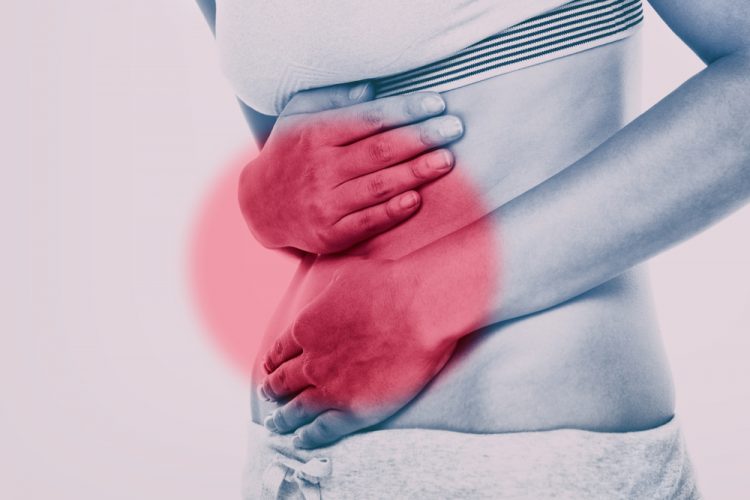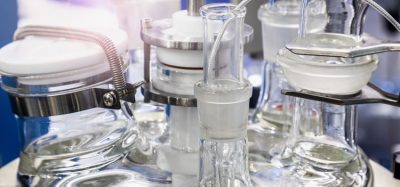Risankizumab induces deep remissions in Crohn’s disease trial
Posted: 3 June 2021 | Hannah Balfour (European Pharmaceutical Review) | No comments yet
Phase III trial data shows more than half of patients with moderate to severe Crohn’s disease treated with risankizumab (Skyrizi®) 360mg achieved clinical remission in a year.


Results from the Phase III maintenance study, FORTIFY, show significantly more patients with moderate to severe Crohn’s disease achieved clinical remission and endoscopic remission with risankizumab 360mg (subcutaneous [SC]; administered every eight weeks) than with induction-only control therapy.
In this study (NCT03105102), patients who responded to 12 weeks of risankizumab intravenous (IV) induction treatment (in a prior study) were re-randomised to receive risankizumab 180mg, risankizumab 360mg or withdrawal from risankizumab treatment (risankizumab IV induction-only control group). This study included different sets of primary and secondary endpoints for the US analysis plan and the outside of the US (OUS) analysis plan due to regulatory requirements in the different regions. The co-primary endpoints were endoscopic response and clinical remission at week 52. Clinical remission was defined by Crohn’s Disease Activity Index (CDAI) in the U.S. analysis plan and by stool frequency and abdominal pain (SF/AP) in the OUS analysis plan.
After one year (52 weeks), 47 percent of patients receiving risankizumab 360 mg achieved endoscopic response compared with 22 percent of patients in the induction-only control group. Significantly more patients receiving risankizumab 360mg achieved clinical remission as defined by CDAI, with 52 percent on risankizumab 360mg achieving clinical remission versus 41 percent in the induction-only control group. Results also showed that 52 percent of patients receiving risankizumab 360mg achieved clinical remission defined by SF/AP compared to 40 percent in the induction-only control group. In addition, 39 percent of patients receiving risankizumab 360mg achieved endoscopic remission compared to 13 percent of patients in the induction-only control group. Furthermore, 29 percent of risankizumab 360mg-treated patients achieved deep remission (a stringent endpoint defined by clinical remission [CDAI] and endoscopic remission) compared to 10 percent in the induction-only control group.
Risankizumab 180mg (SC; administered every eight weeks) met the co-primary endpoints in the US analysis plan, but not in the OUS analysis plan. In this study, 47 percent of patients receiving risankizumab 180mg achieved endoscopic response compared with 22 percent of patients in the induction-only control group. Furthermore, 55 percent of patients receiving risankizumab 180mg achieved clinical remission (CDAI) compared to 41 percent of patients in the induction-only control group. Additionally, 46 percent of patients receiving risankizumab 180mg achieved clinical remission (SF/AP) compared to 40 percent in the induction-only control group. At one year, 30 percent of patients receiving risankizumab 180mg achieved endoscopic remission compared to 13 percent of patients in the induction-only control group. Results also showed that 25 percent of risankizumab 180mg-treated patients achieved deep remission compared to 10 percent in the induction-only control group.
“Nearly half of patients were able to achieve endoscopic response after one year of maintenance treatment with risankizumab,” stated Dr Marc Ferrante, Department of Gastroenterology and Hepatology, University Hospitals Leuven, Belgium. “In a progressive, chronic disease where many people struggle to ever achieve endoscopic response, the rates achieved in this study are encouraging for patients.”
In FORTIFY, during the pivotal 52-week maintenance period, the safety profile of both doses of risankizumab was generally consistent with its known safety profile. No new safety risks were observed. Serious adverse events (SAEs) occurred in 12.3 percent of patients in the risankizumab 180mg group and 13.4 percent of patients in the risankizumab 360mg group, compared to 12.5 percent of patients in the induction-only control group. The most common adverse events (AEs) observed in the risankizumab treatment groups were exacerbation of Crohn’s disease, nasopharyngitis and arthralgia. Rates of serious infections were 2.8 percent and 4.5 percent in those treated with risankizumab 180mg or 360mg, respectively, and 3.8 percent in the induction-only control group. The rates of AEs leading to discontinuation of the study drug were 1.7 percent and 3.4 percent of patients treated with risankizumab 180mg and 360mg, respectively, compared with 3.3 percent in the induction-only control group. There were two adjudicated major adverse cardiovascular events (MACE) reported at the time of database lock; one event occurred in the induction-only control arm and the other occurred in the risankizumab 360mg arm but both were found to be unrelated to the study drug and both patients continued in the trial. There were no anaphylactic reaction events or deaths reported.
Risankizumab (Skyrizi) is part of a collaboration between Boehringer Ingelheim and AbbVie, with AbbVie leading development and commercialisation globally.
Related topics
Antibodies, Biologics, Clinical Trials, Drug Development, Drug Safety, Research & Development (R&D), Therapeutics









